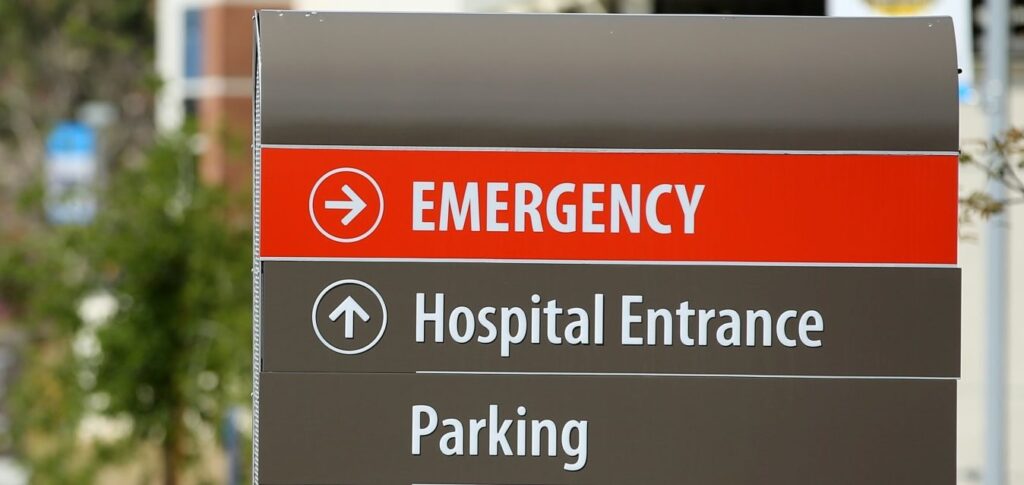Receiving a surprise medical bill can come as a pricey shock if you expected your health insurance to cover the cost. But surprise bills aren’t only costly for the patients receiving them. The ability to surprise bill also gives a subset of providers leverage to extract higher payments from health plans.
New research from the USC-Brookings Schaeffer Initiative for Health Policy finds that services for which surprise billing is common make up 10% of health plan spending – a surprisingly high share. As a result, policies to address surprise billing can have significant secondary effects on insurance premiums, in addition to preventing the surprise bills themselves. For example, the researchers find if these services were paid at rates similar to what other highly-trained specialists earn relative to Medicare prices, insurance premiums would decline by about 5%, which adds up to $38 billion in total premium savings across the commercially-insured population. Even modest proposals, like those before Congress, could have meaningful impacts.
Who Is Surprise Billing?
Surprise bills routinely result from situations where patients don’t have the ability to pick their providers. This occurs often for hospital-based services provided by radiologists, anesthesiologists, and pathologists, as well as in emergencies when patients receive care from emergency physicians, emergency ground ambulances, and emergency outpatient facilities. These providers can remain out-of-network without losing patient volume, and they can seek to collect their full billed charges from health plans and patients.
The burden of surprise bills on the patients who receive them is substantial, but it is not the only way that surprise billing impacts consumers’ healthcare spending. Evidence suggests that the ability to surprise bill creates leverage that enables providers to obtain higher in-network payments from commercial insurers with whom they are contracted. Higher in-network payments increase insurers’ total healthcare spending, and these higher costs are passed on to consumers through higher health insurance premiums.
The research team analyzed commercial claims data from the Health Care Cost Institute that included 568.5 million claims in 2017 from 44.8 million individuals covered by UnitedHealthcare, Aetna, and Humana.
They assessed the impact that two potential federal laws could have on premiums.
“Policies that weaken the provider leverage that stems from the current ability to surprise bill patients should shift some leverage from providers to payers during in-network payment negotiations,” says Erin L. Duffy, a postdoctoral research fellow at the USC Schaeffer Center for Health Policy & Economics and first author on the study, which was published in the American Journal of Managed Care in the September 2020 issue. “Consumers’ premiums are derived from how much plans pay, so if plans pay less, premiums may decrease.”
Potential Policy Protections
Although the focus of surprise billing policies has been protecting patients from receiving these unfair—and often large—surprise bills, policies that reduce such billing practices may also affect health insurance premiums more broadly.
Legislation proposed by the U.S. Senate Committee on Health, Education, Labor and Pensions eliminates the ability to surprise bill patients and mandates that plans pay out-of-network providers at least the median in-network rate in their geographic area. If it reduces average payment rates for services where surprise billing is common by roughly 15%, as the Congressional Budget Office predicts, the researchers find this would correspond to about a 1% reduction in annual premiums per enrollee.
If payments for such services were brought to 150% of the Medicare rate – the high end of payments to other specialists – the team found this would reduce premiums by 5.1%, or $212 per member per year.
“Policies like these would align payments to the handful of specialties that are responsible for most surprise bills more closely with other specialties,” explained Schaeffer Center Associate Director Erin Trish, noting that these are just two scenarios available to policymakers. “There are many policy options to address surprise billing. Our findings should make policymakers aware that the way they address surprise bills will not only reduce patients’ out-of-pocket costs for the immediate bill, but also impact overall health care spending.”
All told, the researchers find these two proposed approaches to addressing surprise bills would lower aggregate premiums for the nation’s commercially insured population by approximately $12 billion to $38 billion, depending on the proposal.
The USC-Brookings Schaeffer Initiative for Health Policy is a partnership between Economic Studies at Brookings and the USC Schaeffer Center for Health Policy & Economics. The study was co-authored by Bich Ly, a research programmer at the USC Schaeffer Center and Loren Adler, associate director of the USC-Brookings Schaeffer Initiative.
